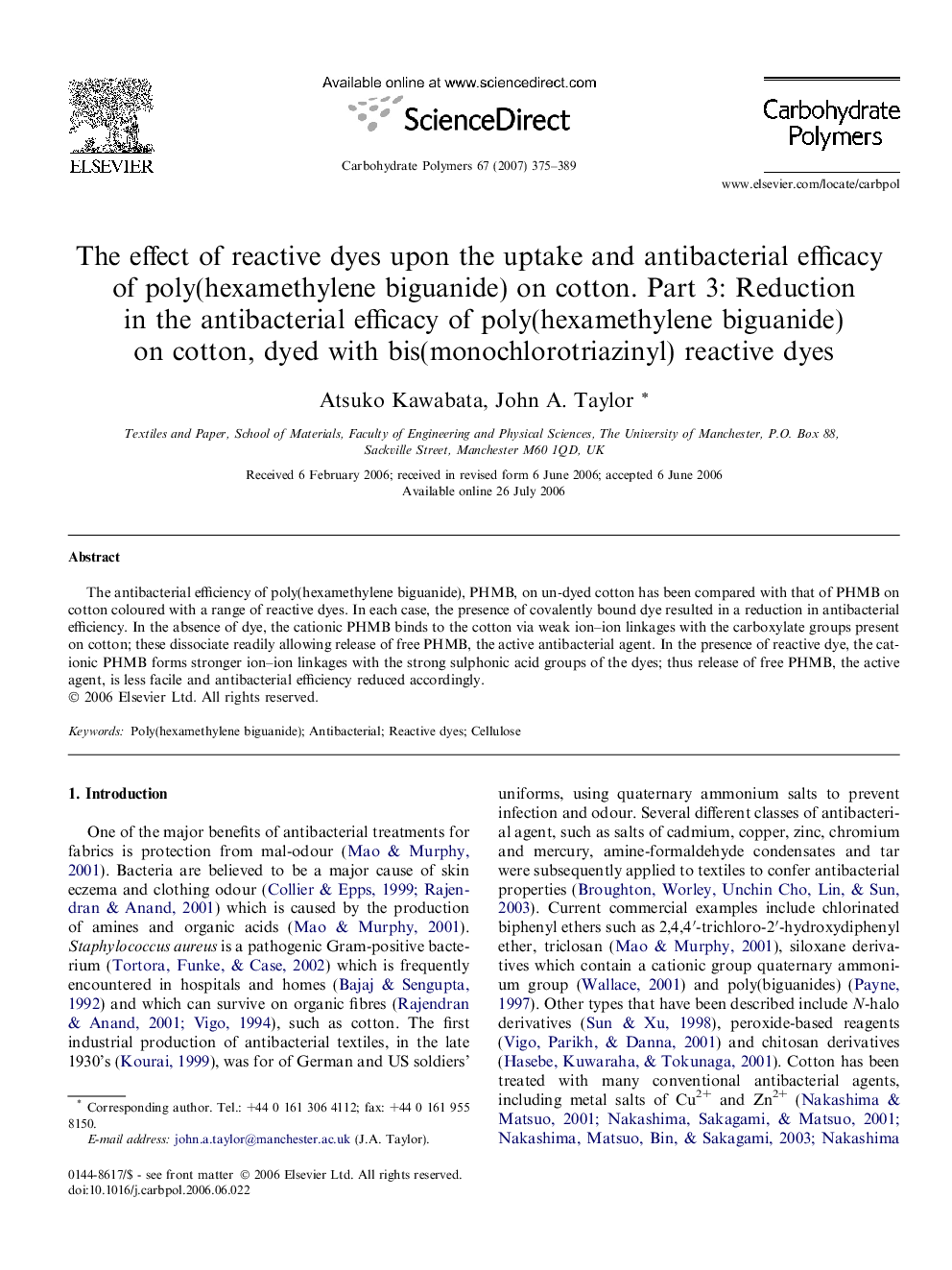| Article ID | Journal | Published Year | Pages | File Type |
|---|---|---|---|---|
| 1385637 | Carbohydrate Polymers | 2007 | 15 Pages |
Abstract
The antibacterial efficiency of poly(hexamethylene biguanide), PHMB, on un-dyed cotton has been compared with that of PHMB on cotton coloured with a range of reactive dyes. In each case, the presence of covalently bound dye resulted in a reduction in antibacterial efficiency. In the absence of dye, the cationic PHMB binds to the cotton via weak ion–ion linkages with the carboxylate groups present on cotton; these dissociate readily allowing release of free PHMB, the active antibacterial agent. In the presence of reactive dye, the cationic PHMB forms stronger ion–ion linkages with the strong sulphonic acid groups of the dyes; thus release of free PHMB, the active agent, is less facile and antibacterial efficiency reduced accordingly.
Related Topics
Physical Sciences and Engineering
Chemistry
Organic Chemistry
Authors
Atsuko Kawabata, John A. Taylor,
